Seeking Solutions Understanding the Rise of Hair Loss Among Young Adults
Seeking Solutions Understanding the Rise of Hair Loss Among Young Adults🙄
Are you one of the young adults who have noticed strands of hair mysteriously vanishing from your once luscious locks? Well, fear not! This blog post is here to unravel the enigma behind the rising trend of hair loss among young adults and shed light on potential solutions. We’ll dive deep into the root causes, explore common misconceptions, and guide you toward regaining that fabulous mane you’ve been yearning for. So buckle up, because it’s time to take control of your tresses and say goodbye to those receding hairlines – let’s find a solution together!
Introduction: The growing issue of hair loss among young adults🤔
Introduction:
Hair loss has been a common issue for people across all age groups, but it has become increasingly prevalent among young adults in recent years. This growing concern has raised questions about the underlying causes and effective solutions to combat hair loss. Not only does hair loss impact physical appearance, but it can also have a significant impact on one’s self-esteem and confidence.
According to a study published in the Journal of Investigative Dermatology, nearly 40% of men experience visible signs of hair loss by the age of 35, and that number increases to almost two-thirds by the age of 60. However, what is even more alarming is that hair loss in young adults aged between 18-34 years old is on the rise.
Causes:
Several factors contribute to hair loss among young adults. The most common cause is genetics; if you have a family history of alopecia or male pattern baldness, there is a high chance that you will experience some form of hair loss. Another significant factor is lifestyle choices such as poor nutrition, stress, smoking, and excessive use of hairstyling products. Hormonal imbalances caused by birth control pills or medication can also lead to hair thinning.
In addition to these factors, other medical conditions like thyroid disorders or autoimmune diseases can also result in hair loss among young adults. For women specifically, hormonal changes due to pregnancy or menopause can often trigger temporary hair shedding.
Social Media Influence:
The obsession with social media and unrealistic beauty standards may also play a role in this increasing trend of young adults experiencing hair loss. Social media platforms are flooded with images promoting thick and luscious locks as the epitome of beauty. This constant comparison and pressure to look perfect may lead many young adults to try various harsh treatments on their scalps without proper consultation from experts.
Solution:
To address this growing concern effectively, it is essential to understand the root cause behind each individual’s hair loss. Consulting a dermatologist or trichologist is crucial to determine the underlying cause and develop a personalized treatment plan. For some, lifestyle changes like a healthy diet and stress management may be enough, while for others, medical treatments such as topical solutions or hair transplant surgery may be recommended.
In addition to seeking professional help, being aware of false information and unrealistic expectations perpetuated by social media is also critical. Accepting one’s natural self and embracing all forms of beauty is essential in promoting self-confidence and reducing the stigma around hair loss.
In this blog series, we will dive deeper into each cause of hair loss among young adults and explore effective solutions that can help combat this growing issue. By understanding the root cause and taking appropriate measures, we can empower young adults to reclaim their confidence and feel comfortable in their skin regardless of their hair type or texture.
Causes of Hair Loss in Young Adults🙋♂️
Hair loss is a common condition that affects both men and women, but it can be particularly distressing for young adults. In fact, according to recent studies, the number of young adults experiencing hair loss has been on the rise in recent years. While it is natural to lose some hair as we age, excessive hair loss in young adults can be attributed to several factors.
1. Genetics
One of the main causes of hair loss in young adults is genetics. Androgenetic alopecia, also known as male or female pattern baldness, is a hereditary condition that causes progressive hair thinning and eventual baldness. It is estimated that this type of hair loss affects about 50 million men and 30 million women in the United States alone.
If you have a family history of androgenetic alopecia, you are more likely to experience hair thinning or baldness at a younger age. This type of genetic predisposition cannot be prevented but there are treatments available to slow down its progression.
2. Hormonal Imbalances
Hormonal fluctuations are another common cause of hair loss in young adults. The most well-known hormone associated with hair growth is dihydrotestosterone (DHT), which plays a crucial role in regulating the growth cycle of our hair follicles.
In some cases, an excess amount of DHT can accumulate around the scalp area causing damage to our follicles and resulting in weaker and thinner strands. In women, hormonal imbalances due to conditions like polycystic ovary syndrome can also lead to increased production of male hormones such as testosterone which can contribute to hair loss.
3. Poor Nutrition
A healthy diet plays an important role not just in our overall health but also in maintaining strong and lustrous locks. A lack of essential nutrients such as iron, protein, or vitamin B12 can cause nutritional deficiencies which can then impact our body’s ability to produce new hairs.
Vegetarian or vegan diets, crash dieting, and eating disorders such as anorexia can also contribute to hair loss in young adults due to a lack of essential nutrients. It is important to maintain a well-balanced diet rich in protein, fruits, vegetables, and healthy fats to support healthy hair growth.
4. Stress and Trauma
Stressful events such as the loss of a loved one, sudden illness or surgery can trigger a type of hair loss known as telogen effluvium (TE). This condition causes temporary hair shedding due to the body going into a “resting” phase where hairs stop growing and eventually fall out.
Moreover, constant stress releases hormones such as cortisol which can have a direct impact on our immune system and disrupt the natural cycle of our hair. Similarly, traumatic experiences like physical injuries or emotional trauma can also cause TE.
5. Excessive Styling or Hair Treatments
Excessive use of harsh styling products or frequent chemical treatments for coloring or straightening can damage the hair shaft leading to breakage and thinning. Additionally
– Genetics👴
Genetics plays a significant role in the development of hair loss among young adults. While it is true that anyone can experience hair thinning or baldness, certain genetic predispositions make some individuals more prone to this condition.
According to research, androgenetic alopecia, also known as male or female pattern baldness, is the most common type of hair loss among both men and women. This hereditary condition is caused by an interplay between hormones and genetics. It is estimated that up to 80% of all cases of hair loss are due to androgenetic alopecia.
The inheritance pattern for this type of hair loss follows a complex code involving multiple genes from both parents. One gene in particular, called the AR gene, has been linked to male pattern baldness. This gene affects how sensitive your body’s cells are to androgens like testosterone, which can lead to excess hair follicle miniaturization and eventually cause gradual thinning of the hairline.
On the other hand, female pattern baldness is thought to be influenced by different genes inherited from both parents. These genes affect the production and balance of female hormones like estrogen and progesterone, which can cause the shrinking of hair follicles over time.
Aside from these two types of genetic-based hair loss, there are also rare conditions such as alopecia areata that have a strong correlation with genetics. This autoimmune disorder causes patchy areas of baldness on the scalp or even complete body hair loss in extreme cases. It has been found that individuals who have a family history of alopecia areata have a higher likelihood of developing this condition themselves.
While it may seem discouraging for those who have a family history of hair loss at an early age, it’s important to remember that genetics is just one factor contributing to this issue. There are still many lifestyle choices you can make to help prevent or slow down the effects of genetic-related hair loss.
For instance, maintaining a healthy diet rich in essential nutrients like protein, iron, and vitamins A, C, and D can help keep your hair strong and promote growth. Additionally, reducing stress levels and avoiding harsh hair treatments can also prevent further damage to your hair follicles.
Genetics is a key component in understanding the rise of hair loss among young adults. While it may be a determining factor for some individuals, making healthy lifestyle choices can still play a significant role in managing this condition. It’s important to consult with a healthcare professional if you have concerns about your genetic predisposition to hair loss or are experiencing noticeable thinning of your hair.
– Lifestyle factors (diet, stress, etc.)🍉🍇
Understanding the impact of lifestyle factors on hair loss among young adults is essential in finding solutions for this increasingly prevalent issue. While genetics play a significant role in hair loss, lifestyle choices such as diet and stress can also contribute to thinning hair and premature balding.
Diet is one aspect that affects hair health. A poor diet lacking vital nutrients can lead to weak and brittle hairs, making them more prone to breakage. On the other hand, a well-balanced diet rich in proteins, vitamins (specifically Biotin), minerals (zinc and iron), and healthy fats promotes healthier hair growth. Foods such as fish, eggs, leafy greens, nuts, and seeds should be incorporated into one’s daily meals to ensure adequate intake of these crucial nutrients.
Aside from diet, stress has been linked to an increase in hair shedding among young adults. When our bodies are under stress, it releases cortisol – known as the “stress hormone.” Higher levels of cortisol can lead to inflammation around the follicles which interrupt the normal cycle of hair growth resulting in increased shedding. Managing stress through relaxation techniques such as meditation or yoga can help reduce cortisol levels and alleviate its effects on hair.
Furthermore, excessive use of styling tools and chemical treatments can cause damage to the hair shafts leading to thinning over time. The heat from blow dryers or straighteners strips away moisture from the scalp making it difficult for new hairs to grow properly. Similarly, harsh chemicals used during coloring or bleaching treatments weaken the strands causing breakage. Alternative methods like air-drying or switching to natural dyes can help preserve healthy locks.
In recent years, another lifestyle factor that has gained attention is alopecia caused by tight hairstyles such as braids or ponytails which tug at the roots of the hair follicles causing damage over time. This type of trauma leads to a condition called traction alopecia where repeated tension causes permanent scarring resulting in irreversible hair loss. It is important to take breaks from tight hairstyles and opt for looser styles that allow the scalp to breathe.
Factors such as smoking and excessive alcohol consumption also have detrimental effects on hair growth. Chemicals in tobacco products hinder blood flow to the follicles, reducing the delivery of essential nutrients necessary for hair growth. Similarly, alcohol dehydrates the body leading to dryness of the scalp which can affect hair health.
Lifestyle factors play a crucial role in addressing and preventing hair loss among young adults. By adopting healthy habits such as maintaining a balanced diet, managing stress levels, minimizing the use of harsh chemicals and styling tools, avoiding tight hairstyles, and limiting harmful behaviors like smoking and excessive alcohol consumption; individuals can combat premature balding and promote healthier hair growth.
– Environmental factors (pollution, chemicals)
Hair loss is a common issue that affects both men and women, but recently, there has been an increase in hair loss among young adults. While genetics and hormones are often cited as the main factors contributing to hair loss, environmental factors such as pollution and exposure to chemicals cannot be overlooked. In this section, we will discuss how these external factors can play a significant role in causing hair loss among young adults.
Environmental pollution is a growing concern in today’s society, with pollutants present in the air, water, and soil. Air pollution from vehicles, industrial activities, and agricultural practices releases harmful toxins into the environment. These toxins can have various adverse effects on our health, including the health of our hair follicles. When pollutants enter our body through inhalation or ingestion, they can disrupt the normal functioning of cells in our scalp, leading to increased hair shedding and thinning.
Another major environmental factor that has been linked to hair loss is exposure to certain chemicals. Chemicals found in everyday products like shampoos, conditioners, styling products, and even household cleaners can be harmful to our hair. The most damaging chemicals include parabens (preservatives), sulfates (foaming agents), phthalates (fragrances), formaldehyde (straightening agent), and triclosan (antimicrobial agent). These ingredients penetrate deep into the scalp and may accumulate over time if used frequently. They can irritate the scalp skin resulting in inflammation which damages hair follicles leading to their miniaturization; ultimately diminishing hair thickness.
A recent study conducted by researchers at Johns Hopkins University found that black women who used permanent hair dyes were more likely to develop breast cancer than those who didn’t use them regularly. Similarly, millennial females infected with a particular human papillomavirus strain called HPV type-16 had higher levels of urinary polycyclic aromatic hydrocarbons than uninfected females according to Swedish research. This group of chemicals is found in secondhand smoke, air pollution, and various food sources such as processed and grilled meats which increases the risk of developing lung cancer among other predisposing conditions.
In addition to these external factors, our lifestyle choices may also contribute to hair loss. Smoking, drinking excessive alcohol, and a poor diet can cause inflammation in the body, affecting hair follicles’ health. Poor nutrition can also deprive the scalp of essential vitamins and minerals needed for healthy hair growth.
To protect our hair from environmental pollutants and harmful chemicals that are present in many everyday products, it is important to choose natural and organic options whenever possible. Regularly washing your hair with a clarifying shampoo to remove build-up is also recommended. It’s also vital to maintain a healthy lifestyle by following a balanced diet rich in vitamins and minerals and avoiding harmful habits like smoking or excessive alcohol consumption.
While there may be several underlying reasons for the rise of hair loss among young adults, environmental factors such as pollution and exposure to chemicals cannot be ignored. Taking steps to limit our exposure to these
– Medical conditions or treatments🧑⚕️
Medical conditions and treatments are important factors to consider when discussing the rise of hair loss among young adults. While genetics and lifestyle choices play a significant role in hair health, many medical conditions can contribute to hair loss or thinning.
One common condition is hormonal imbalance. Hormones such as testosterone and dihydrotestosterone (DHT) can affect the growth cycle of hair follicles, leading to excessive shedding or slow regrowth. This imbalance can be caused by various factors including certain medications, thyroid problems, and polycystic ovary syndrome (PCOS).
Another potential cause of hair loss is an autoimmune disorder known as alopecia areata. This condition occurs when the immune system attacks the hair follicles, causing them to shrink and eventually stop producing new hairs. It often starts with small patches of hair loss on the scalp but can progress to more widespread baldness.
Stress is also a major factor that can trigger temporary or permanent hair loss in young adults. When we experience stress, our bodies release cortisol which can disrupt the normal functioning of hormones and other bodily processes. This disruption can lead to several different types of alopecia such as telogen effluvium (TE), where large amounts of hair enter the resting phase at once, resulting in increased shedding.
Fortunately, there are many medical treatments available for addressing these underlying causes of hair loss in young adults. Depending on the specific condition or root cause identified by a healthcare professional, treatments may include hormonal therapy for imbalances, immunosuppressants for autoimmune disorders like alopecia areata, or alternative medications for managing symptoms without affecting healthy follicles.
For those experiencing hair loss due to stress, learning how to manage and reduce stress levels can greatly improve the health of hair. Additionally, incorporating anti-inflammatory foods and supplements into your diet can also help combat inflammation in the body that may contribute to hair loss.
Understanding medical conditions and treatments that can lead to hair loss is crucial for young adults seeking solutions for their thinning or shedding strands. By addressing these underlying issues, individuals may be able to regain their full head of healthy hair. It’s important to consult a healthcare professional for proper diagnosis and treatment recommendations before making any changes or starting new medications.
– Side effects of medication
One of the most common solutions for hair loss among young adults is medication. While it can be effective in promoting hair growth, it is important to understand that there may also be potential side effects associated with these treatments.
The most commonly prescribed medications for hair loss are topical minoxidil and oral finasteride. Topical minoxidil, also known as Rogaine, works by increasing blood flow to the scalp and stimulating hair follicles. However, some of the side effects associated with this medication include scalp irritation and itching, dryness or flaking of the scalp, and unwanted facial hair growth.
On the other hand, oral finasteride, also known as Propecia or Proscar, inhibits the conversion of testosterone into dihydrotestosterone (DHT), a hormone that is linked to male pattern baldness. It is effective in restoring hair growth in men but has not been approved for use in women due to potential birth defects. Some common side effects of finasteride include decreased libido and sexual dysfunction.
Aside from these two main medications, others such as corticosteroids and immunosuppressants have also been used to treat hair loss in certain cases. However, they come with their own set of side effects including weight gain, increased risk of infections, and skin thinning.
It is crucial to discuss any potential side effects with your doctor before starting any medication for hair loss treatment. They will be able to provide you with a full understanding of possible risks and advise on how best to manage or minimize them.
Additionally, it’s important to note that these medications may not work for everyone. As with any medical treatment, results may vary from person to person. It’s essential not only to have realistic expectations but also not to rely solely on medication as the solution for your hair loss problem. It’s always recommended to combine lifestyle changes such as managing stress levels and eating a balanced diet to achieve the best possible outcome.
While medication can be an effective solution for hair loss among young adults, it’s crucial to understand and be aware of any potential side effects that may occur. Discussing your options with a healthcare professional and actively managing any potential risks is key to finding the most suitable treatment plan for you.
Effects of Hair Loss on Young Adults
Hair loss is a common issue that affects people of all ages and genders, but it has become increasingly prevalent among young adults in recent years. This can have a significant impact on their self-esteem, mental health, and overall well-being.
One of the most obvious effects of hair loss on young adults is its impact on their physical appearance. Hair is often seen as an important aspect of one’s physical attractiveness, and losing it at a young age may make individuals feel less confident and desirable. This can lead to social anxiety and withdrawal from social situations, which can further exacerbate feelings of isolation and depression.
In addition to the emotional toll, hair loss also has practical implications for many young adults. It can affect their employment opportunities as certain industries or job roles may prioritize candidates with a full head of hair. This can be especially challenging for those who are just starting in their careers or looking to advance professionally.
Hair loss also takes a toll on one’s financial situation. Many young adults turn to expensive treatments such as hair transplants or medications to combat their condition, which can quickly add up in cost. For those who cannot afford these options, they may resort to cheaper alternatives that are not always effective or safe, leading to frustration and disappointment.
Furthermore, the psychological impact of hair loss should not be underestimated. Studies have shown that hair is intricately tied to our sense of self-identity and losing it may trigger feelings of insecurity and low self-worth. Young adults experiencing this struggle with constant thoughts about how they are perceived by others and worry about being judged for their appearance.
Moreover, some underlying medical conditions that cause hair loss in young adults have been linked to other health issues such as hormone imbalances, thyroid problems, and autoimmune disorders. Therefore addressing hair loss early on can potentially lead to early detection of these conditions before they develop into more severe health concerns.
The effects of hair loss on young adults are not just limited to physical appearance but also affect their mental, emotional, financial, and overall health. Therefore, young adults need to seek solutions and understand the underlying causes of hair loss to address the issue effectively and improve their quality of life.
– Physical appearance and confidence
Physical appearance plays a significant role in our society, and hair is often considered a crucial aspect of one’s physical appearance. For many young adults, their hair is an essential part of their identity and contributes to their confidence. However, the rise of hair loss among young adults can greatly impact their physical appearance and self-esteem.
Hair loss refers to a reduction in the amount or quality of hair on the scalp. It can be caused by various factors, including genetics, stress, hormonal changes, poor nutrition, and certain medical conditions. While it is commonly associated with aging, more and more young adults are experiencing hair loss at an alarming rate.
The first noticeable effect of hair loss is often a change in one’s physical appearance. Many people feel that their thinning or receding hairline makes them look older than they are or affects their overall attractiveness. This shift in physical appearance can have a significant impact on one’s confidence levels.
Losing one’s hair can also lead to feelings of self-consciousness and embarrassment. As social creatures, we tend to compare ourselves to others constantly. The constant reminder that our peers have healthy heads of hair while we struggle with our own can be debilitating for some individuals’ self-confidence.
Moreover, society has perpetuated unrealistic beauty standards that prioritize thick and luscious locks as the epitome of beauty. With social media platforms bombarding us with images of perfect-looking individuals with flawless hairstyles, it is no surprise that those struggling with hair loss may feel inadequate and less confident.
The psychological effects of losing one’s hair should not be underestimated either. Hair loss has been linked to depression, anxiety, and low self-esteem among young adults who are already dealing with the stresses of adulthood. These negative emotions may further exacerbate the issue by causing increased levels of stress – which leads to even more severe shedding.
Physical appearance plays an integral part in how we perceive ourselves and interact with others. Hair loss among young adults can have a significant impact on one’s physical appearance and confidence levels, leading to feelings of self-consciousness and inadequacy. Understanding the psychological effects of hair loss is vital in seeking solutions to this growing issue, as it goes beyond just the physical aspect and affects an individual’s overall well-being.
– Mental and emotional impact
The issue of hair loss among young adults can have a significant impact on a person’s mental and emotional well-being. Hair has always been viewed as an important aspect of one’s appearance and self-esteem, making hair loss a source of insecurity and distress for many individuals.
For some young adults, the sudden thinning or loss of hair can trigger feelings of low self-worth and depression. They may feel that their physical appearance is not up to societal standards and struggle with accepting their changing image. As a result, they may become withdrawn and avoid social situations, leading to feelings of isolation and loneliness.
Moreover, the constant worry about hair loss can also cause anxiety in young adults. The fear of losing more hair or not being able to find a solution can consume their thoughts and negatively affect their daily lives. This can lead to difficulty in concentrating on tasks at hand, hindering performance at work or school.
Hair loss among young adults can also be emotionally challenging for those who are single and looking for romantic relationships. The pressure to conform to conventional beauty standards can make them feel unattractive and undesirable. It may also result in avoiding potential relationships out of fear that they will be judged based on their hair loss.
The impact of hair loss is not limited only to those experiencing it firsthand; family members and friends close to the individual may also be affected emotionally by seeing their loved one struggling with this issue.
In addition to these emotional impacts, coping with the financial burden associated with treating hair loss can add additional stress for young adults. Seeking solutions such as expensive treatments or products can become financially draining, causing further strain on one’s mental state.
Both society as well as individuals themselves need to understand the emotional toll that hair loss takes on young adults. Support from family members, and friends, and seeking professional help from therapists or support groups should be encouraged for those dealing with this issue.
Society must recognize and address the mental and emotional impact of hair loss among young adults. This issue goes beyond physical appearance and can greatly affect a person’s overall well-being. By promoting self-acceptance and offering support, we can help individuals cope with this condition and improve their quality of life.
– Impact on relationships and social life🧬
Impact on Relationships and Social Life
Hair loss can have a significant impact on the relationships and social life of young adults. It is not just a physical change, but it can also affect one’s self-esteem, confidence, and overall well-being. Hair is often viewed as a symbol of youth and attractiveness, so losing it at a young age can be emotionally distressing.
Confidence and Self-Esteem: Hair loss among young adults can have a profound effect on their confidence and self-esteem. Many people link their hair to their sense of identity and losing it can make them feel self-conscious or less attractive. This may lead to social anxiety, avoiding social events, or feeling uncomfortable in public settings.
Romantic Relationships: Hair loss can also impact romantic relationships for young adults. If someone feels insecure about their appearance due to hair loss, they might struggle with intimacy or dating. They may feel embarrassed about their partner seeing them without hair or wearing hats/wigs to cover up. In extreme cases, hair loss can even lead to relationship issues if it causes low self-esteem in one partner.
Social Interactions: Alongside romantic relationships, hair loss can affect one’s interactions with friends and acquaintances too. Young adults who are experiencing hair loss might avoid social events where they will have to take off their head covering or swimwear that reveals their scalp/hairline. They may face comments or jokes from peers about their appearance that could further damage their confidence.
Work/Career Impact: For college students or recent graduates entering the workforce, dealing with hair loss adds another layer of stress in already high-pressure situations. The fear of judgment from colleagues/employers based on appearance alone could cause anxiety which may hinder professional growth opportunities.
Seeking Help: The emotional impact of hair loss among young adults should not be underestimated as it affects every aspect of life – including academic/career success! It is crucial for those experiencing this to seek help from trusted family/friends and professionals. A caring support system can provide emotional support, making it easier to tackle the issue together.
Hair loss can have a profound effect on relationships and social life for young adults. It is essential to understand these impacts and seek help if needed – both physically (from a doctor or hair specialist) and emotionally (from loved ones). Remember, hair loss does not define you as a person, and with the right mindset and support, you can overcome any challenges that come your way.
Treatment Options for
There are a variety of treatment options available for tackling hair loss among young adults. These treatments range from over-the-counter products to more invasive procedures, each with its own benefits and risks. It is important to consult with a healthcare professional before deciding on a treatment plan as they can assess the underlying cause of the hair loss and recommend the most suitable option.
1. Lifestyle Changes:
In some cases, making simple lifestyle changes may help combat hair loss. This includes eating a balanced diet rich in proteins, vitamins, and minerals that promote healthy hair growth. Additionally, reducing stress levels through exercise or relaxation techniques can also contribute to improving overall scalp health.
2. Topical Medications:
One of the most common treatment options for young adult hair loss is the use of topical medications such as minoxidil (Rogaine). This medication works by stimulating blood flow to the scalp, promoting thicker and fuller hair growth. It is available over the counter and should be applied directly onto the scalp twice a day for optimal results.
3. Prescription Medications:
For more severe cases of hair loss, prescription medications such as finasteride (Propecia) may be recommended by a healthcare professional. This medication targets hormones that contribute to male pattern baldness and inhibits their production, allowing for hair regrowth in affected areas. However, it is important to note that this medication is only suitable for men and may have side effects such as decreased libido or erectile dysfunction.
4 Medical Procedures:
For those seeking more permanent solutions, there are several medical procedures available to treat young adult hair loss.
– Hair Transplant:
This involves transferring healthy follicles from one area of the scalp to another where there is thinning or balding.
– Platelet-rich Plasma (PRP) Therapy:
This process involves injecting platelet-rich plasma extracted from your blood into your scalp to stimulate new hair growth.
– Low-level laser therapy (LT):
A non-invasive option for hair loss treatment, LLLT uses red light therapy to stimulate hair follicles and promote new growth.
5. Wigs and Hairpieces:
For individuals who are not comfortable with medications or medical procedures, wigs and hairpieces can be a viable option. With advancements in technology, there are now options that look natural and feel comfortable to wear.
There is no one-size-fits-all solution for young adult hair loss. Each individual may respond differently to different treatments, so it is important to work with a healthcare professional to find the best plan for you. Remember that seeking early treatment can increase the chances of success, so do not hesitate to address any concerns about your hair health with a trusted healthcare provider.
Don’t forget to give us a follow on Facebook!😍

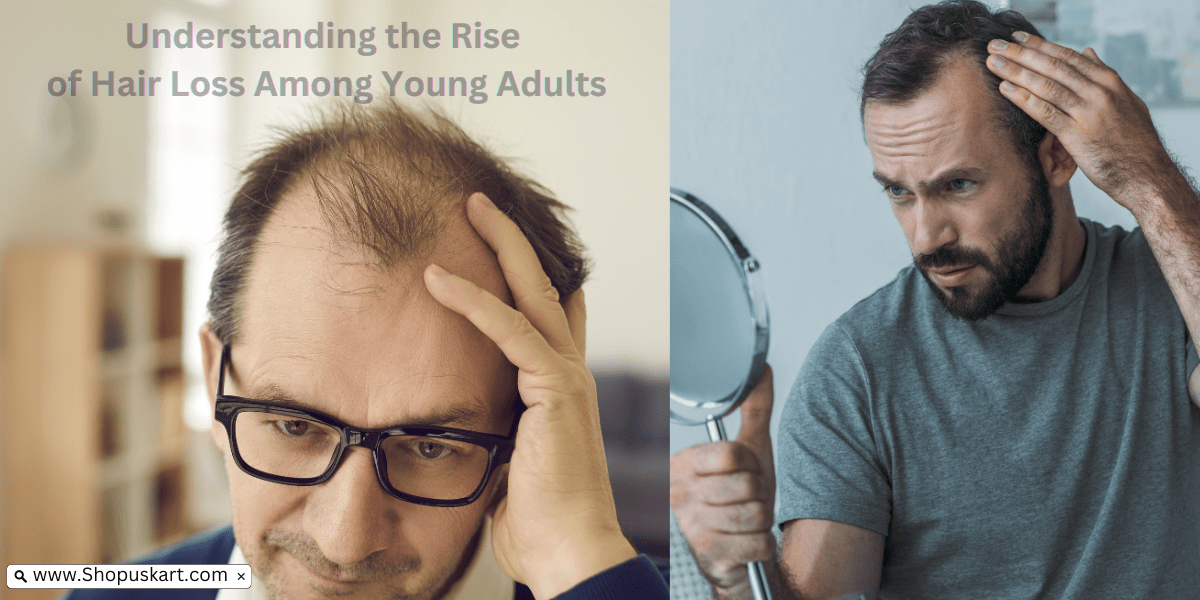
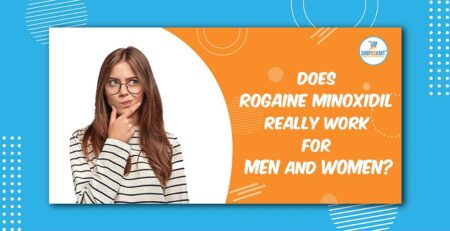

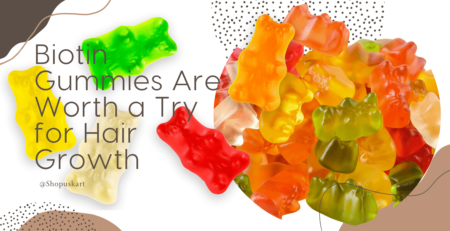



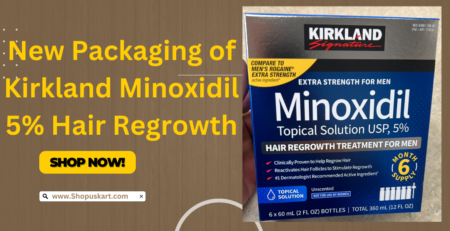

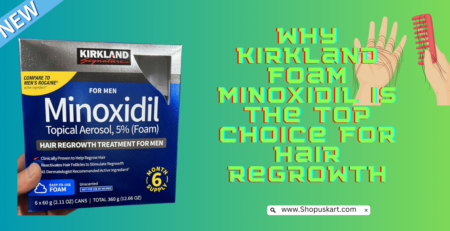

Leave a Reply